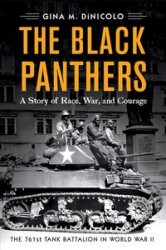¦ Why did congressmen in New York City and Boston, cities with plenty of factories, vote with congressmen from North Carolina and Georgia against the high 1828 tariffs?
¦ What did the mercantile elites of those cities have in common with the inland cotton planters of the South?
Contemptuously described the land north and west of Missouri, today one of the world’s richest agricultural regions, as “a prairie without food or water.”
The Missouri Compromise did not end the crisis. When Missouri submitted its constitution for approval by Congress (the final step in the admission process), the document, besides authorizing slavery and prohibiting the emancipation of any slave without the consent of the owner, required the state legislature to pass a law barring free blacks and mulattos from entering the state “under any pretext whatever.” This provision plainly violated Article IV, Section 2, of the U. S. Constitution: “The Citizens of each State shall be entitled to all Privileges and Immunities of Citizens in the several States.” It did not, however, represent any more of a break with established racial patterns, North or South, than the Tallmadge amendment; many states east of Missouri barred free blacks without regard for the Constitution.
Nevertheless, northern congressmen hypocritically refused to accept the Missouri constitution. Once more the debate raged. Again, since few Northerners cared to defend the rights of blacks, the issue was compromised. In March 1821 Henry Clay found a face-saving formula: Out of respect for the “supreme law of the land,” Congress accepted the Missouri constitution with the demurrer that no law passed in conformity to it should be construed as contravening Article IV, Section 2.
Every thinking person recognized the political dynamite inherent in the Missouri controversy. The sectional lineup had been terrifyingly compact. If so trivial a matter as the addition of a single state could so divide the people, was it correct to even refer to it as a “Union”? Moreover, despite the timidity and hypocrisy of the North, everyone realized that the rights and wrongs of slavery lay at the heart of the conflict. “We have the wolf by the ears, and we can neither safely hold him, nor safely let him go,” Jefferson wrote a month after Missouri became a state. The dispute, he said, “like a fire bell in the night, awakened and filled me with terror.” Jefferson knew that the compromise had not quenched the flames ignited by the Missouri debates. “This is a reprieve only,” he said. John Quincy Adams called it the “title page to a great tragic volume.” Yet one could still hope that the fire bell was only a false alarm, that Adams’s tragic volume would remain unread.
•••-[Read the Document Missouri Enabling Act at myhistorylab. com




 World History
World History









